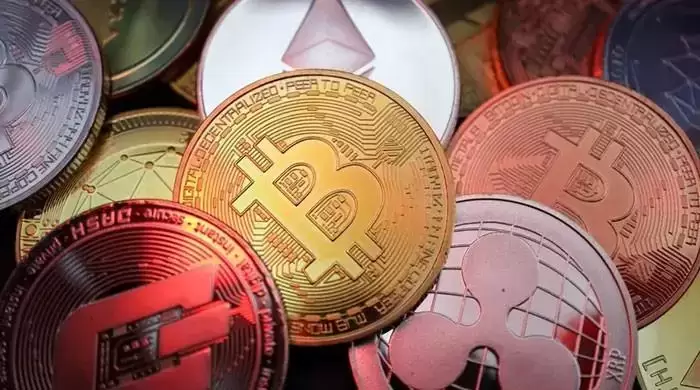 |
|
 |
|
 |
|
 |
|
 |
|
 |
|
 |
|
 |
|
 |
|
 |
|
 |
|
 |
|
 |
|
 |
|
 |
|
Cryptocurrency News Articles
Ethereum developers are working to improve blockchain interoperability with two new token standards: ERC-7930 and ERC-7828.
May 01, 2025 at 10:09 pm
“There’s no standard way for wallets, apps, or protocols to interpret or display this information,” decentralized finance (DeFi) ecosystem development organization Wonderland wrote in a May 1 X post.
A group of Ethereum developers is working to improve blockchain interoperability with two new token standards: ERC-7930 and ERC-7828.
The goal is to finalize both token standards within the next two weeks, and the next working group call will be scheduled shortly.
During a recent Ethereum Foundation interoperability working group call, developers from Wonderland discussed the creation of two new token standards to improve blockchain interoperability.
The organization is known for its contributions to the decentralized finance (DeFi) ecosystem development.
The goal is to streamline the integration of various protocols and technologies within the Ethereum ecosystem.
Wonderland has partnered with Optimism, Aztec, Connext and Yearn to facilitate seamless interoperability.
The organization's researchers and data scientists are dedicated to advancing the Ethereum DeFi ecosystem.
The goal of the working group is to develop a common standard for handling and displaying blockchain addresses.
Currently, wallets, decentralized applications (DApps), block explorers and smart contracts follow different rules for interpreting and displaying this information.
“There’s no standard way for wallets, apps, or protocols to interpret or display this information,” Wonderland wrote in a May 1 X post.
This lack of uniformity creates a messy and inconsistent experience that hinders the cross-chain user experience (UX).
The developers are proposing two new token standards to resolve this issue.
ERC-7930 will define a compact, binary format for interoperable addresses, while ERC-7828 will add a human-readable layer using formats like address@chain.
Together, these standards will ensure that everything remains clear and simple for users while also optimizing protocols that require a single representation for all blockchains.
“Target audience for ERC-7828 is anything that interacts with humans. ... It’s the text layer,” Teddy from Wonderland explained during the call.
Many chains, one address
The proposed system would allow the sender to specify the target blockchain when sending a payment address.
This would include both a machine-readable format for application programming interfaces and a human-readable format like address@chain.
The setup prevents users from sending or receiving assets on the wrong blockchain, which helps prevent crypto losses.
Currently, the same address can be used on multiple blockchains within the Ethereum ecosystem, which can lead to confusion.
With the new setup, wallet operation can be blockchain-agnostic, and the address input into the user interface will also determine which blockchain the transaction is directed toward.
This would, in turn, reduce friction, as users currently need to switch networks in wallet settings to move from chain to chain.
Disclaimer:info@kdj.com
The information provided is not trading advice. kdj.com does not assume any responsibility for any investments made based on the information provided in this article. Cryptocurrencies are highly volatile and it is highly recommended that you invest with caution after thorough research!
If you believe that the content used on this website infringes your copyright, please contact us immediately (info@kdj.com) and we will delete it promptly.
-

-

-

- A cryptocurrency tied to US President Donald Trump's company, World Liberty Financial, has been chosen by an Abu Dhabi investment firm for a $2 billion deal with Binance
- May 02, 2025 at 07:00 am
- It's part of a growing list of crypto ventures linked to the Trump family, including a "meme coin" launched in January which have raised concerns
-

-

-

-

-

-



















![[Geometry Dash] VAST by AdrianArtistry (2nd update on first coin) [Geometry Dash] VAST by AdrianArtistry (2nd update on first coin)](/uploads/2025/05/01/cryptocurrencies-news/videos/geometry-dash-vast-adrianartistry-nd-update-coin/image-1.webp)




































